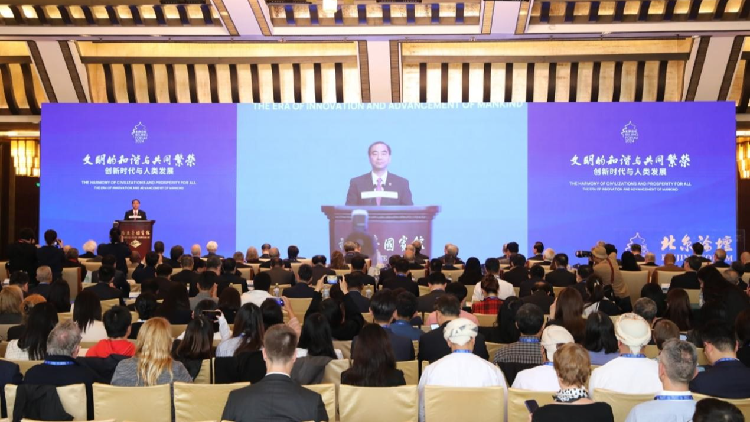Calls for U.S. to Boost AI Collaboration with China
As competition in artificial intelligence (AI) development escalates, experts at the 2024 Beijing Forum emphasized the critical need for collaboration between China and the United States in the AI sector.

Both China and the U.S. are at the forefront of AI development, possessing advanced laboratories and comprehensive language models that are recognized globally. Graham Webster, a research scholar at Stanford University, emphasized this during a panel session at the forum.
Webster cautioned that a total decoupling between the two countries would have detrimental effects. "There would be a significant loss of efficiency and innovation," he stated. He called for both nations to keep open lines of communication regarding AI risk and safety at the government level, while also engaging with a diverse international community that includes scholars with various cultural perspectives.
He further noted that it's essential for leading countries like China and the U.S. to ensure that the benefits of AI technologies, including advancements in medicine, are distributed widely.
Karman Lucero, a research fellow at Yale University's Paul Tsai China Center, pointed out the increasing global interest in China's rapid developments in AI. He asserted that valuable insights could be gained from China's vibrant and varied AI ecosystem.
Lucero added that fostering mutual understanding and tackling challenges between the U.S. and China necessitates not just official discussions but also exchanges among people.
In recent years, the U.S. has taken steps to restrict AI collaboration with China. Nonetheless, efforts have been made to facilitate dialogues to address disputes. In May, China and the U.S. conducted their first inter-governmental meeting on AI in Geneva, focusing on technological risks, global governance, and shared concerns. A second China-U.S. Track 1.5 Dialogue occurred in June in Beijing, where participants agreed to enhance cooperation in AI.
Lei Shaohua, an associate professor at Peking University's School of International Studies, warned against the economic fragmentation that could result from technological rifts. He proposed a "bottom-up" approach, encouraging collaboration among universities, think tanks, government research institutions, and AI companies from both nations, which could help stabilize their bilateral relations.
The panel session, titled "Digitalization and Intellectuals: The Convergence of Multiple Disciplines in the Era of AI," took place at Peking University as part of the annual Beijing Forum. This year’s event, scheduled to conclude on Sunday, gathered over 500 experts and scholars from more than 30 countries and regions.
Sanya Singh contributed to this report for TROIB News
Discover more Science and Technology news updates in TROIB Sci-Tech












